Wayne Carey’s planned induction to NSW AFL Hall of Fame exposes glaring issue
The AFL’s plans to reflect on the biggest issue in Australia right now are being slammed. And Wayne Carey is right in the middle.
COMMENT
Tonight, as the Carlton and Collingwood football teams observe a moment’s silence to honour the victims of gender-based violence, Wayne Carey was set to be inducted into the inaugural NSW Australian Football Hall of Fame.
Before the start of each Round 8 match, players, senior coaches and umpires will form a circle in the centre of the ground as the AFL takes a “stand in solidarity” against an epidemic that’s allegedly killed at least 29 women so far this year.
“When it comes to violence against women, the only acceptable figure is zero,” AFL CEO Andrew Dillon said, announcing the “activation” this week.
“We … understand our industry still has work to do, but we are committed to continuing to educate, to take action, and even more conscious of that, we must work harder than ever. All men are responsible for doing better.”
It’s natural to wonder, then – as many fans have – how the league can say all of this and still take the time to, once again, honour a man like Carey.
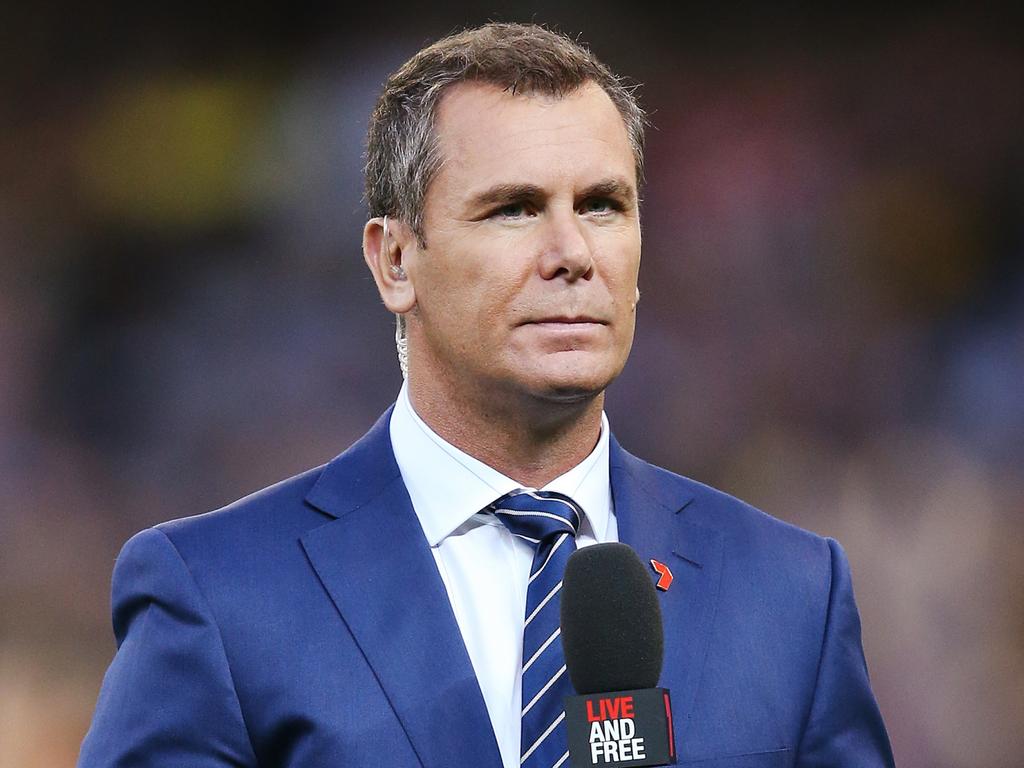
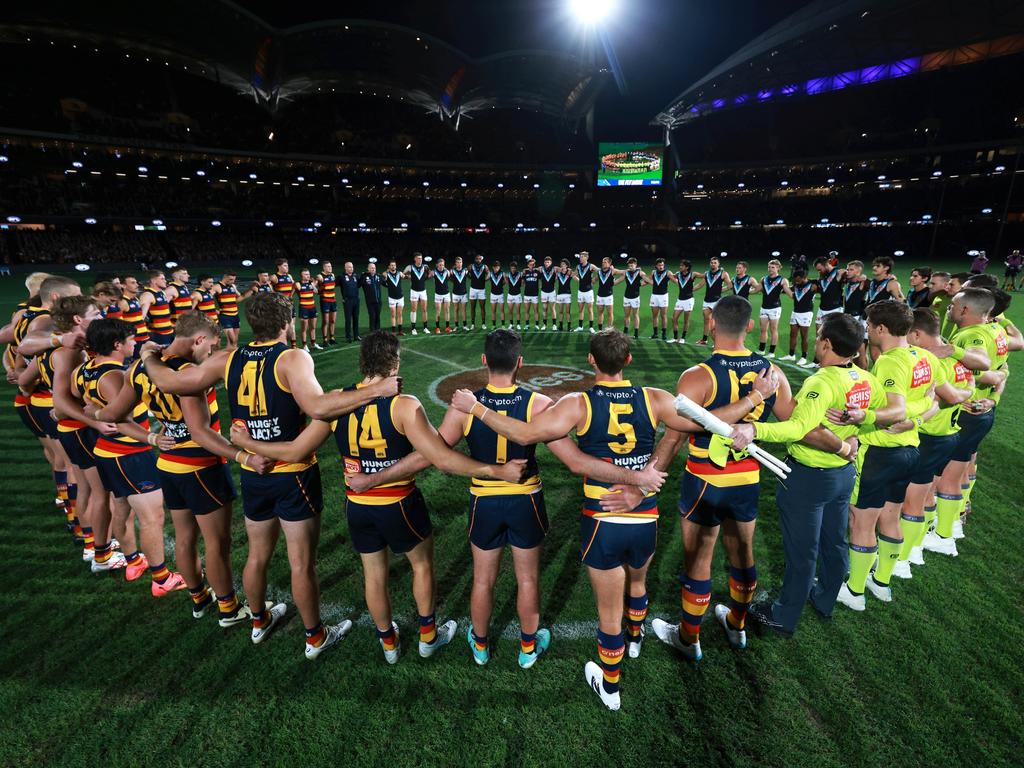
The Wagga Wagga-born North Melbourne player’s history of domestic violence allegations and assault convictions is as lengthy as it is bleak.
For the unfamiliar, a brief refresher: in 1997, he pleaded guilty to indecent assault after grabbing a woman’s breast on a Melbourne street and allegedly asking her: “Why don’t you go and get a bigger set of t*ts?” The matter was settled out of court.
UPDATE: AFL blocks Wayne Carey honour
In 2006, Carey allegedly hit himself over the head with a champagne bottle and wrestled with a security guard after an alleged domestic dispute with his then-girlfriend, Kate Neilson, in a New York hotel room.
The security guard, Kyle Banks, went on tell A Current Affair that he saw Carey “smacking” Ms Neilson in their room at the W Hotel and tried to intervene.
In 2007, Miami police were called to a luxury hotel after Carey allegedly smashed a wine glass into Ms Neilson’s face during a confrontation in the hotel’s restaurant, leaving her “bleeding profusely”.
When cops went to the couple’s suite, Carey lashed out and kicked a female officer in the mouth, and was convicted of battery on a law enforcement officer.
Carey maintains he “lent over to throw wine on her at a restaurant” and the wine glass merely slipped from his hands and “touched” Ms Neilson on the lip.
While she did not press charges, Ms Neilson later described their relationship as “toxic”, telling the Herald Sun “with certainty the glass of wine was intentionally thrown into my face and smashed my mouth pretty bad”.
So of course, in 2010, Carey was inducted into the AFL Hall of Fame.
In the years since, he has been afforded countless other opportunities to redeem himself in the public eye – commentary roles on three separate networks; an appearance on SAS Australia, the Channel 7 show with a penchant for rehabbing the images of “fallen” Australian men.
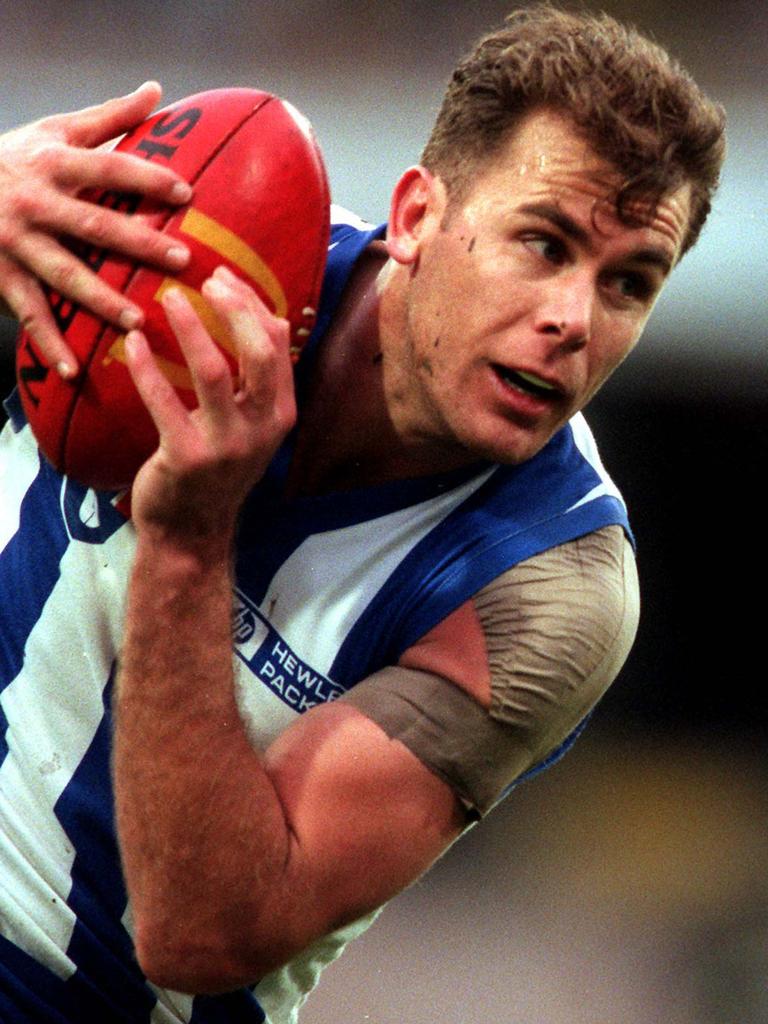
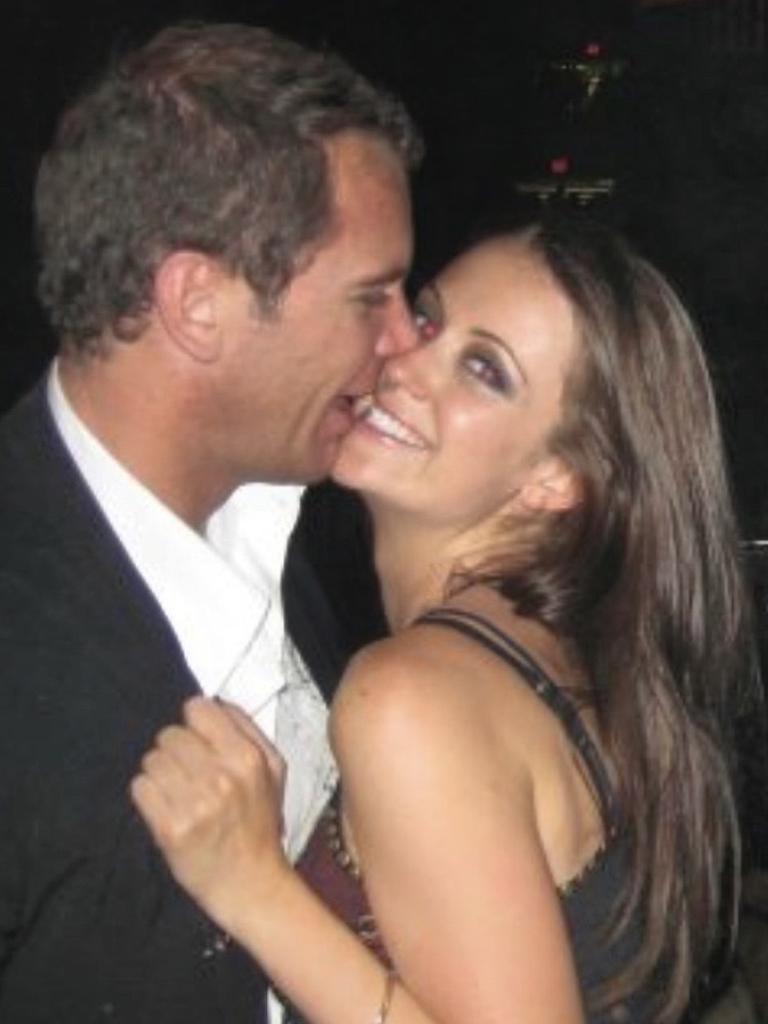
National Women’s Safety Alliance (NSWA) executive director, Katherine Berney, slammed the decision to elevate Carey.
“I think that it is important for sporting codes to step up and say this is not the expectation we have of our players, our clubs, our fans, and so I support that, because that’s the way we need to get these messages out into the community,” Ms Berney said.
“Doesn’t it feel a bit empty when you then celebrate someone who has a history of harming women?
“I think when people harm someone, that is their legacy. I don’t really care if they’ve got awards or anything like that, it makes no difference to me.
“He pleaded guilty to indecent assault … what a great guy to celebrate and amplify because he can kick a football. It’s disgusting.”
The sentiment on social media was much the same.
“While the AFL still embraces people like Wayne Carey to be part of the game, the sport has no business on lecturing on women’s safety,” one fan wrote on X in response to the NSW Hall of Fame news.
“Are you really inducting Wayne Carey into the hall of fame (on Friday)?” another asked.
“So everything that you say about speaking up against violence against women is fake? You do remember that he glassed and abused his partner don’t you? Shameful.”
“Pretty weird they do this (moment’s silence) and then still glorify Wayne Carey,” someone else said.
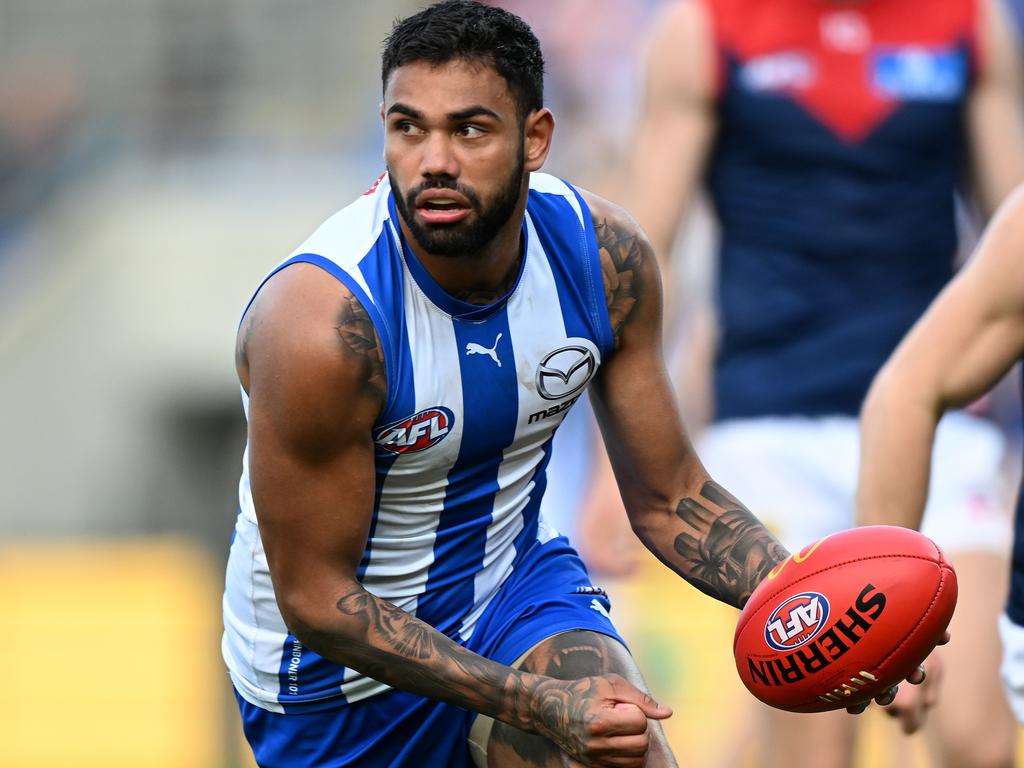
It comes as parts of the league consider whether another of its players, Tarryn Thomas, should be granted a second chance.
In February, the 24-year-old was sacked from North Melbourne and banned for 18 matches after engaging “in multiple acts of misconduct including threatening a woman via direct messages multiple times”, an investigation found.
Hours after Prime Minister Anthony Albanese convened a snap national cabinet meeting to discuss our “scourge” of violence against women, however, Essendon coach Brad Scott made headlines when he urged compassion for Thomas, asking: “Do we just wash our hands and say we’re done with him or do we help him?”
The remarks were widely panned by fans and former players alike, including Geelong champion and domestic violence advocate Jimmy Bartel, who said he felt “very uncomfortable” with the suggestion Thomas should be given the chance to play again.
“I get the whole premise of forgiveness and chances. He’s had a number of chances for his alleged behaviour, just tabling that,” Bartel, whose father physically abused his mother, sisters and himself as a child, said on Nine’s Footy Classified on Wednesday night.
“But at some stage there’s got to be a fork in the road, because the forgiveness angle hasn’t worked, because the (domestic violence) numbers are actually getting worse … At some stage, the privilege has got to run out.
“Playing AFL football, we talk about this with the drugs issue, it’s a privilege to play AFL.
“It was a privilege to get multiple opportunities. And now you’re getting the privilege of being spoken about getting another lifeline?
“Throw your arms around him, support him, but you don’t have to do that at AFL level.”
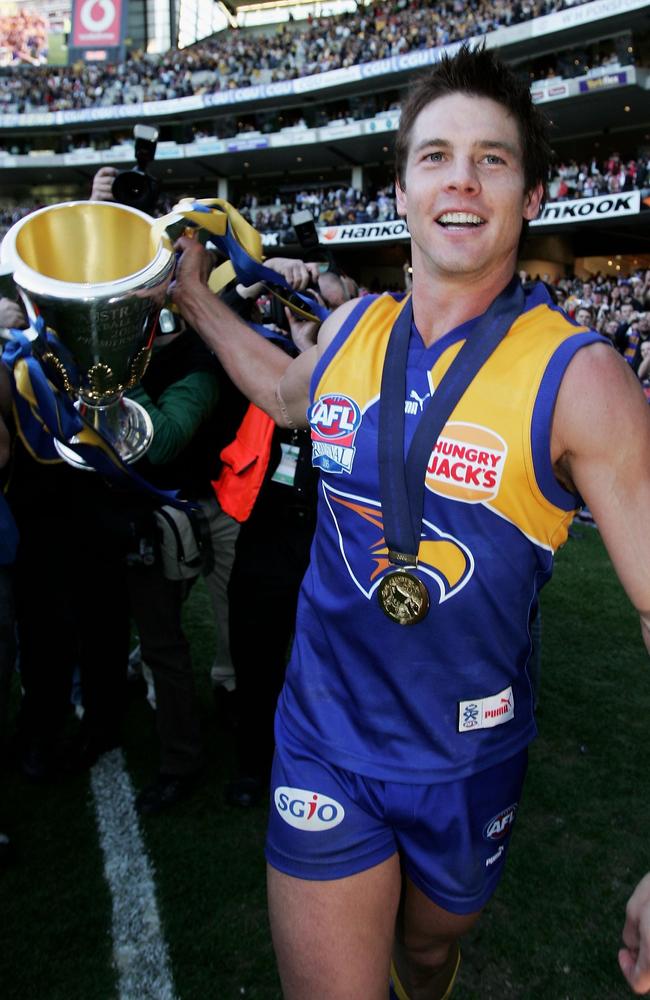
Thomas’s suspension was the longest handed out to a player by the AFL for conduct unbecoming since the West Coast Eagles’ 12-month ban of Ben Cousins in 2007.
Coincidentally, Cousins – a convicted stalker who was jailed for seven months after repeatedly breaching a restraining order and allegedly threatening to kill his former partner and mother of his children, Maylea Tinecheff – also made his way out of the woodwork this week, appearing on Channel 7’s The Front Bar.
This year, he will compete on another of the network’s shows, Dancing with the Stars; while multiple reports in recent weeks have suggested “momentum is building” around a push for Cousins to be inducted into the Hall of Fame.
The AFL is right to, as executive general manager of social policy and inclusion, Tanya Hosch said, use its “national platform … to take a stand and contribute to driving cultural change in our game”.
The league at least stepped in with an 11th hour decision to block Carey’s elevation to legend status at the NSW Hall of Fame and the footballer agreed not to attend the function at the SCG.
But until it stops doling out second and third and fourth and fifth chances to “good” men like Carey and Cousins and Thomas, a moment’s silence is nothing more than performance art.






